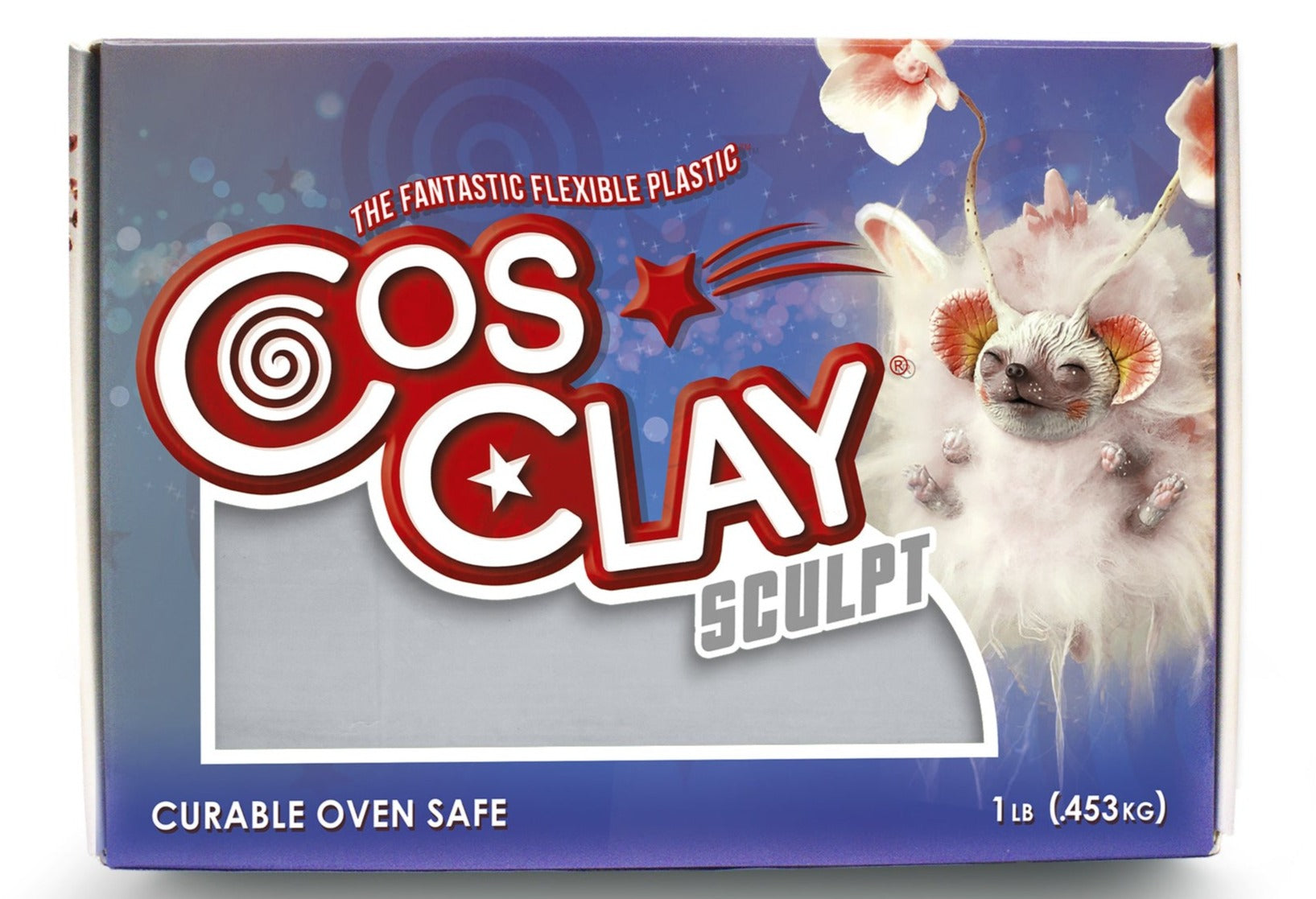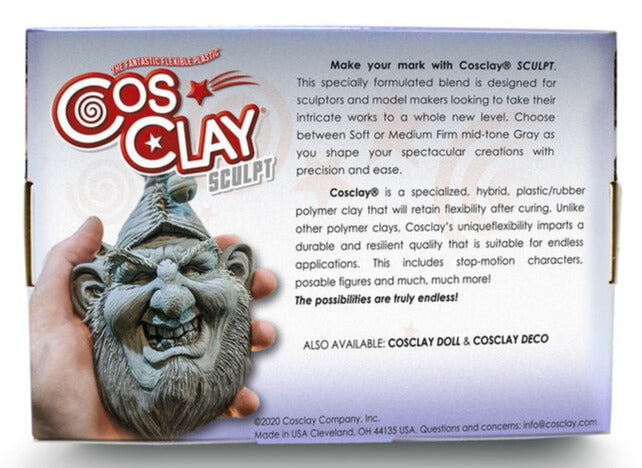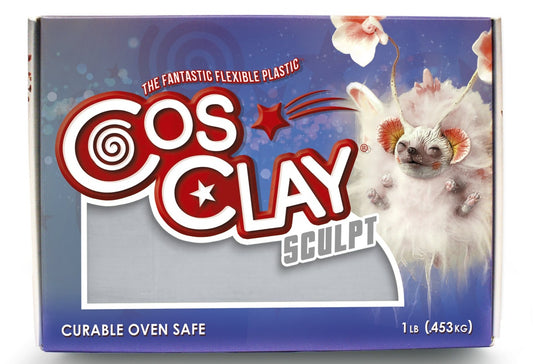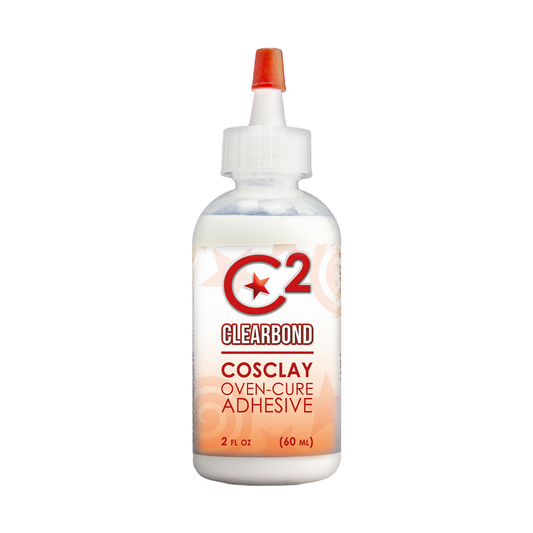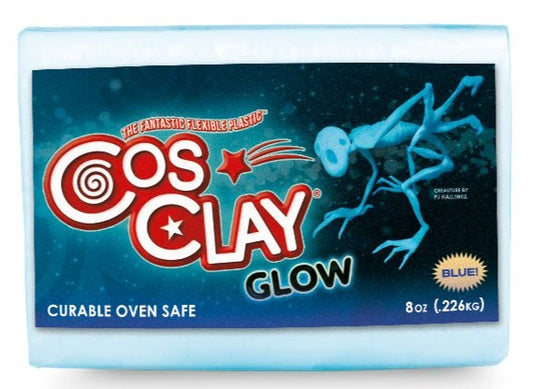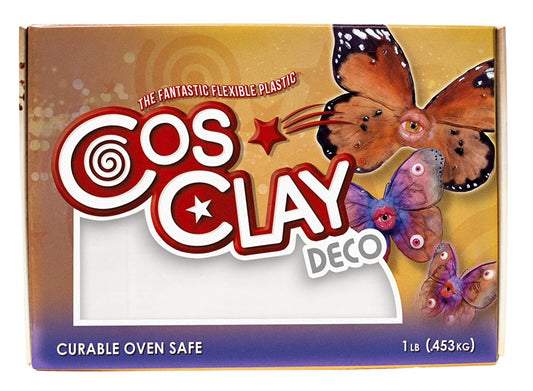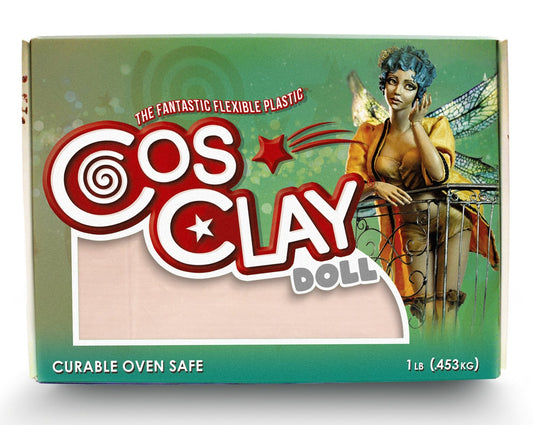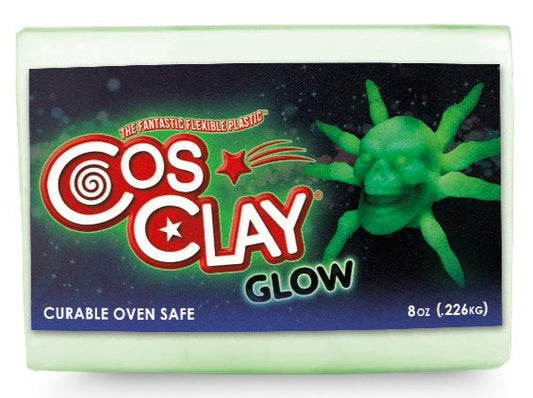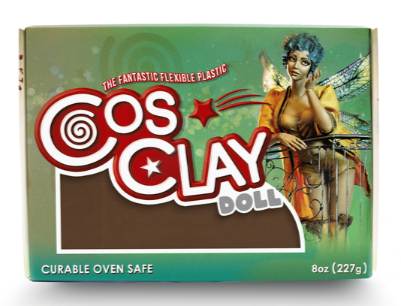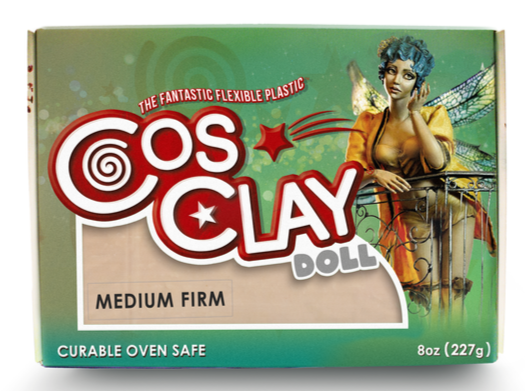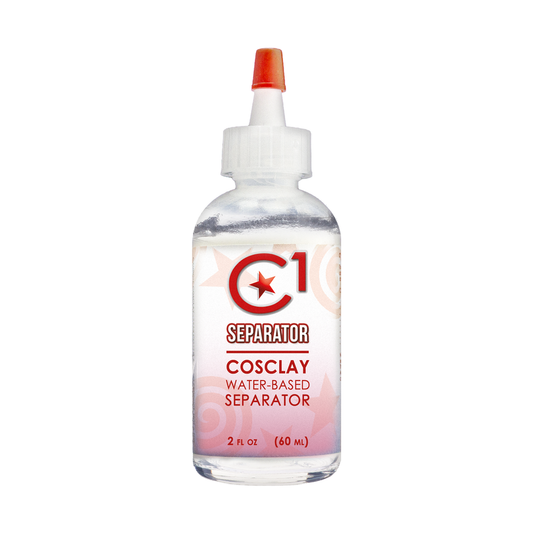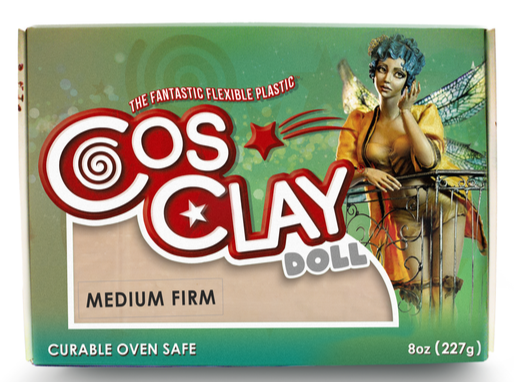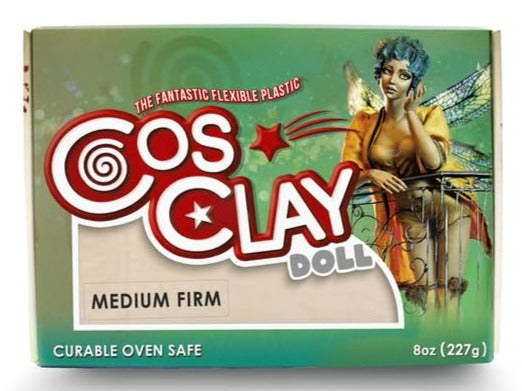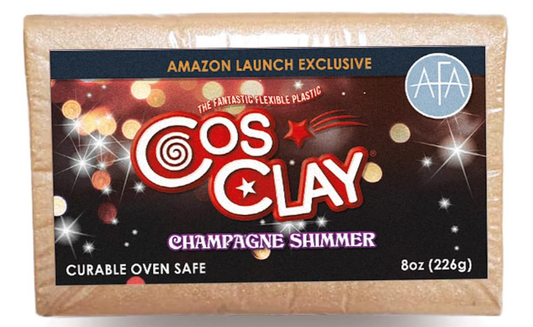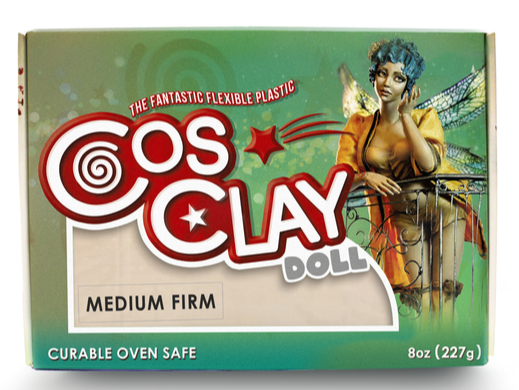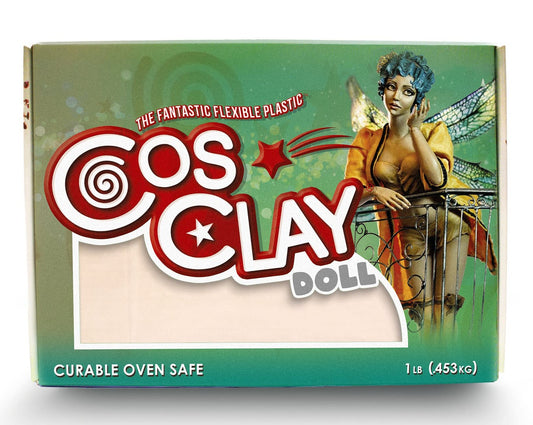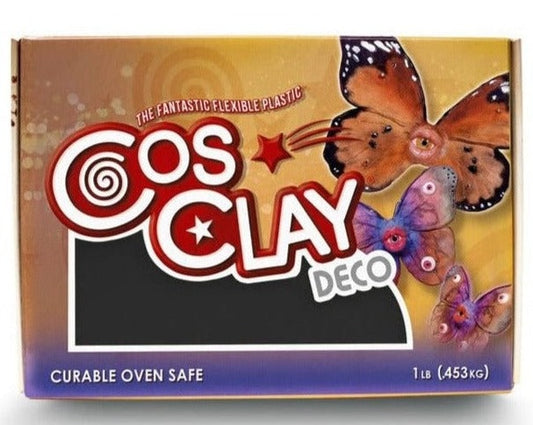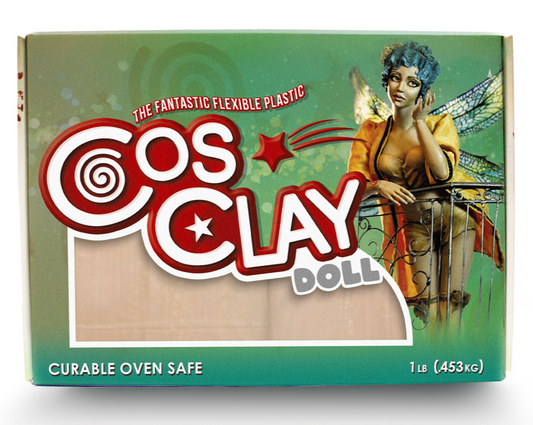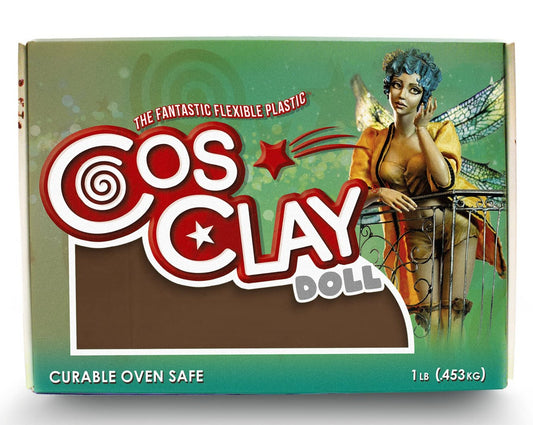Cosclay
Cosclay Sculpt - Flexible Polymer Clay
Cosclay Sculpt - Flexible Polymer Clay
Couldn't load pickup availability
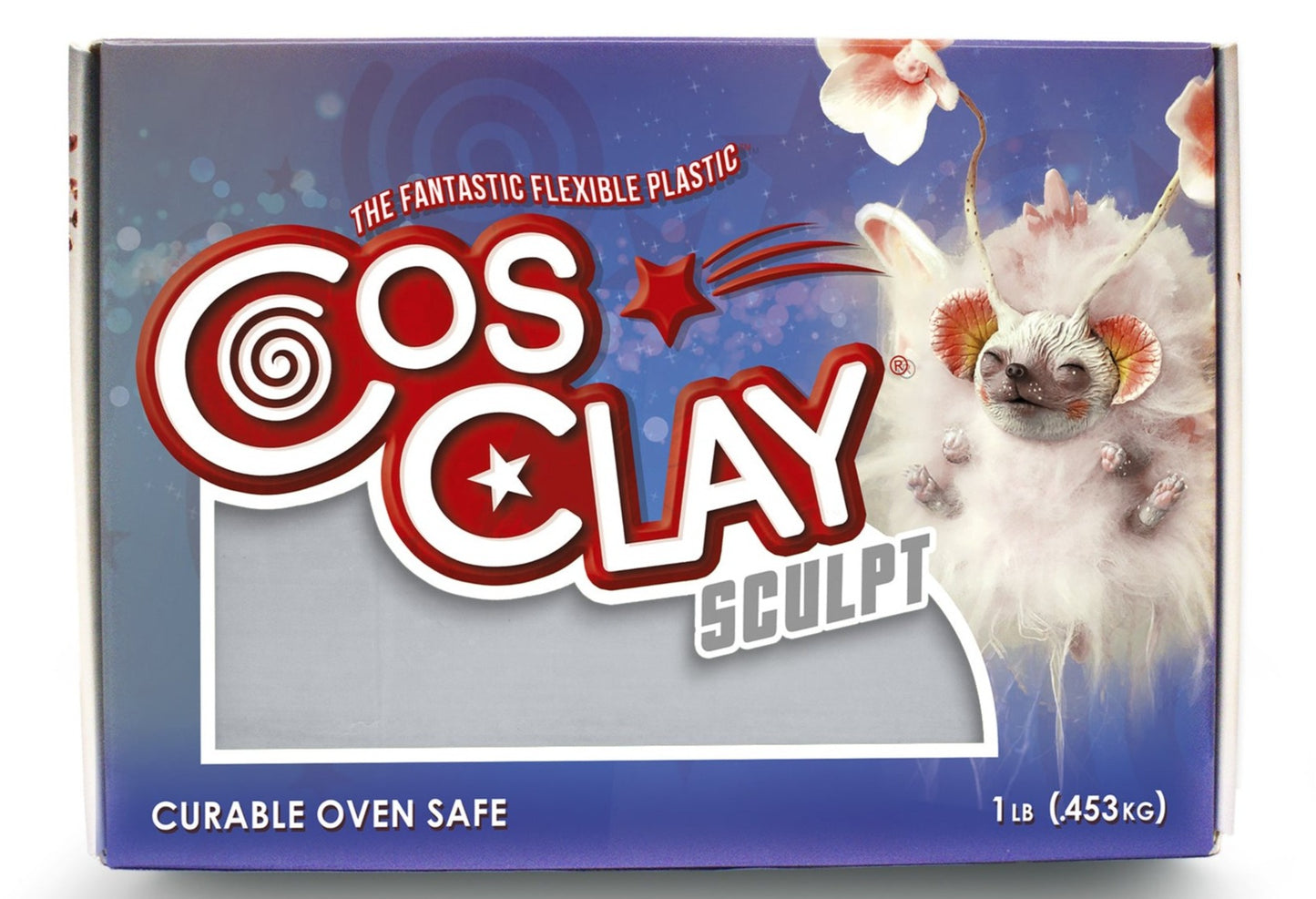
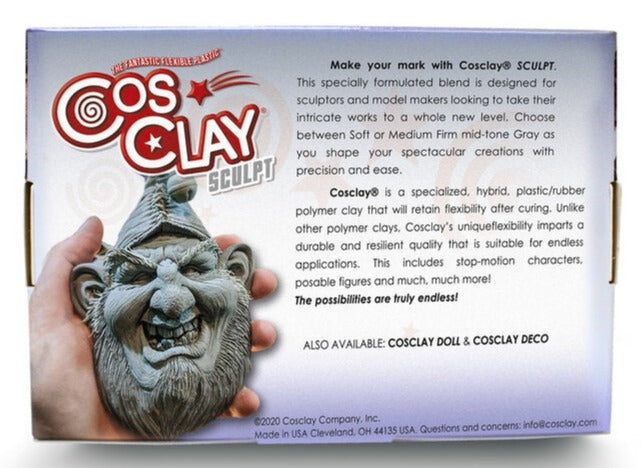
- Hybrid Plastic/Rubber Polymer Clay; Remains Flexible After Curing
- Shatterproof and Damage Resistant
- High Green Strength; Blends With Ease
- Stays Soft Until Baked; Does Not Air Dry
- Made In The USA ; Conforms to ASTM D-4236 Safety Standards; Non Toxic.
What is Cosclay? Cosclay is a hybrid, plastic/rubber polymer clay that remains strong and flexible after curing. Unlike other polymer clays, Cosclay’s unique flexibility imparts a durable and resilient quality that is suitable for endless applications, such as stop-motion characters, posable figures, one of a kind (OOAK) sculptures and much more! Cosclay allows for the creation of very thin and delicate pieces without the fear of breakage after curing, especially during transit. What temperature is best to cure Cosclay to get the optimal properties of the cured clay? It is important to cure at 275°F (135°C) for at least 3 minutes per ¼” of material. If Cosclay is cured at too low a temperature, it will have a weak cure and will break when bent instead of flexing and holding its shape. Because Cosclay is temperature sensitive we do not recommend tabletop plastic dome style halogen convection ovens. Or small tabletop toaster ovens. We find that these types of ovens generate hotspots and uneven heating. While they may work for conventional polymer clays, they do not work well for Cosclay. The best type oven that provides the most even heating is a conventional home oven, either electric or gas. Can I bake my Cosclay, add new Cosclay and bake it again? Will the new clay stick to the cure clay? The answer is yes! You can bake Cosclay repeatedly and new clay will stick to cured clay. How many times can I bake my piece without losing the flexible aspect of Cosclay? Cosclay is formulated to remain flexible after repeated baking. We have baked pieces dozens of times without any noticeable loss of flexibility. Can Cosclay be painted? Yes. Cosclay can be painted with craft acrylics, pastels, Genesis polymer paints and some urethanes. (Test on a small, discreet area for compatibility.) Does Cosclay contain any hazardous components? No. Cosclay is made of 1% nontoxic ingredients. It has been tested by a certified toxicologist and conforms to ASTM D-4236.


